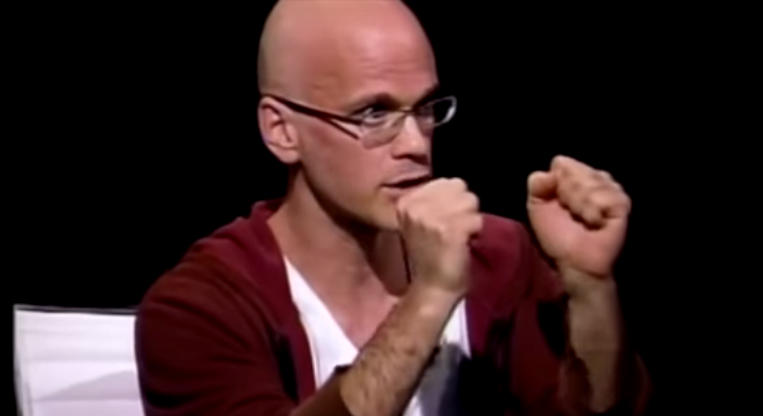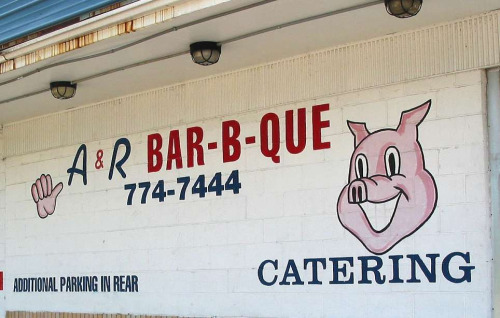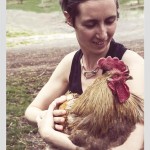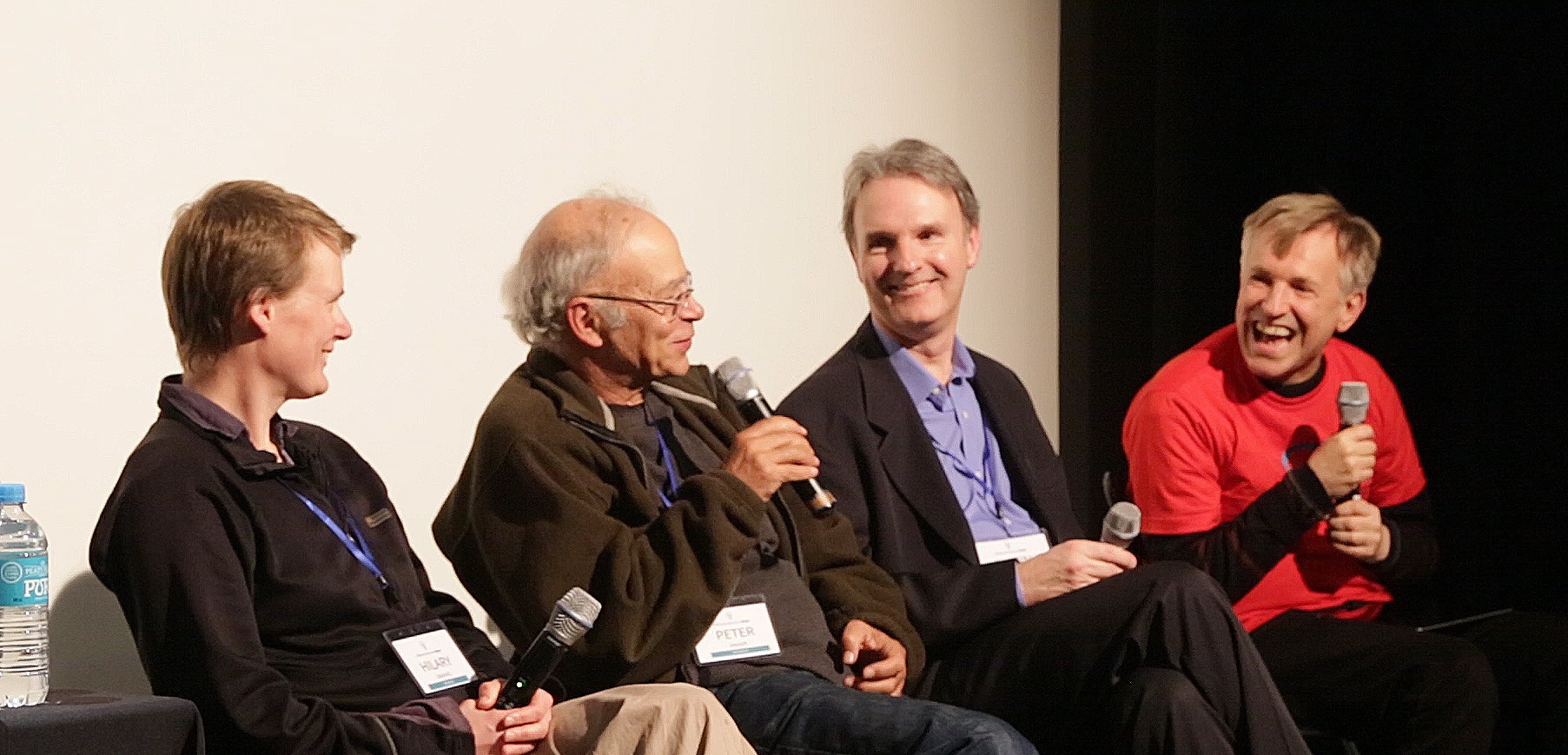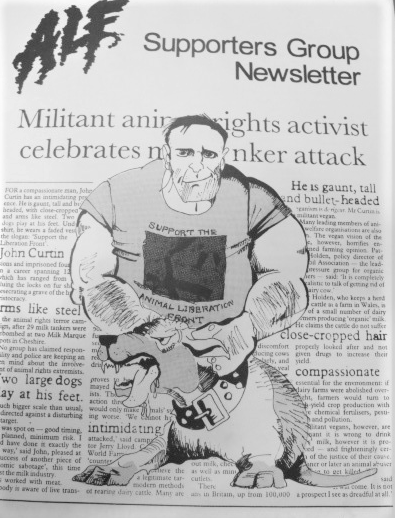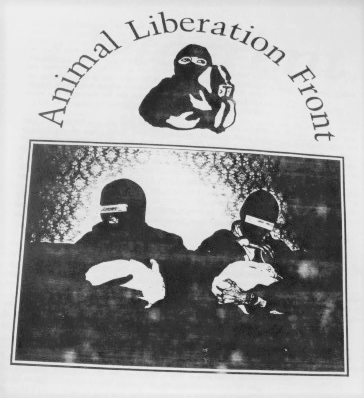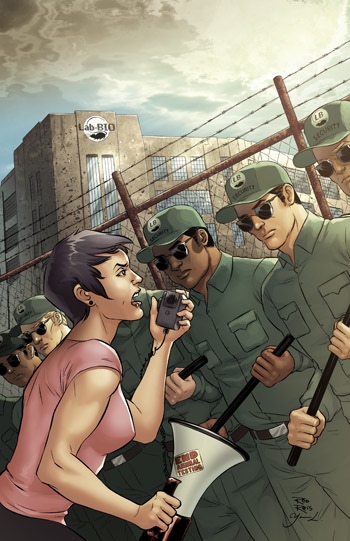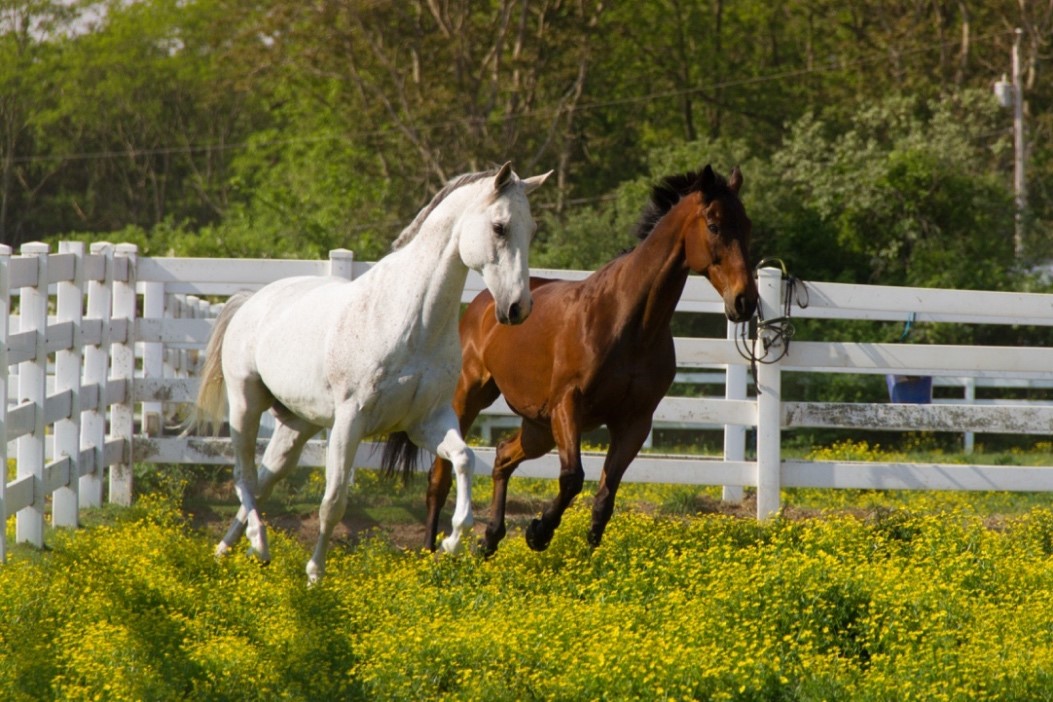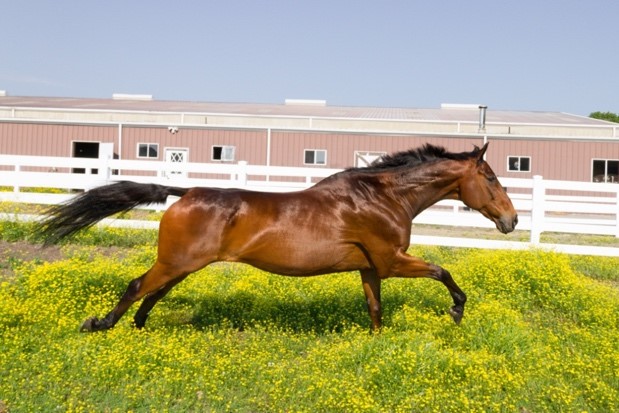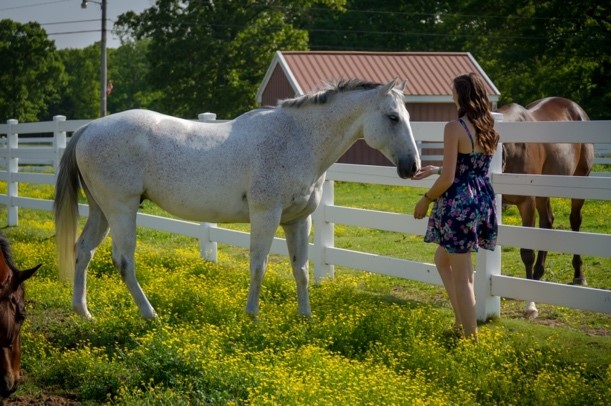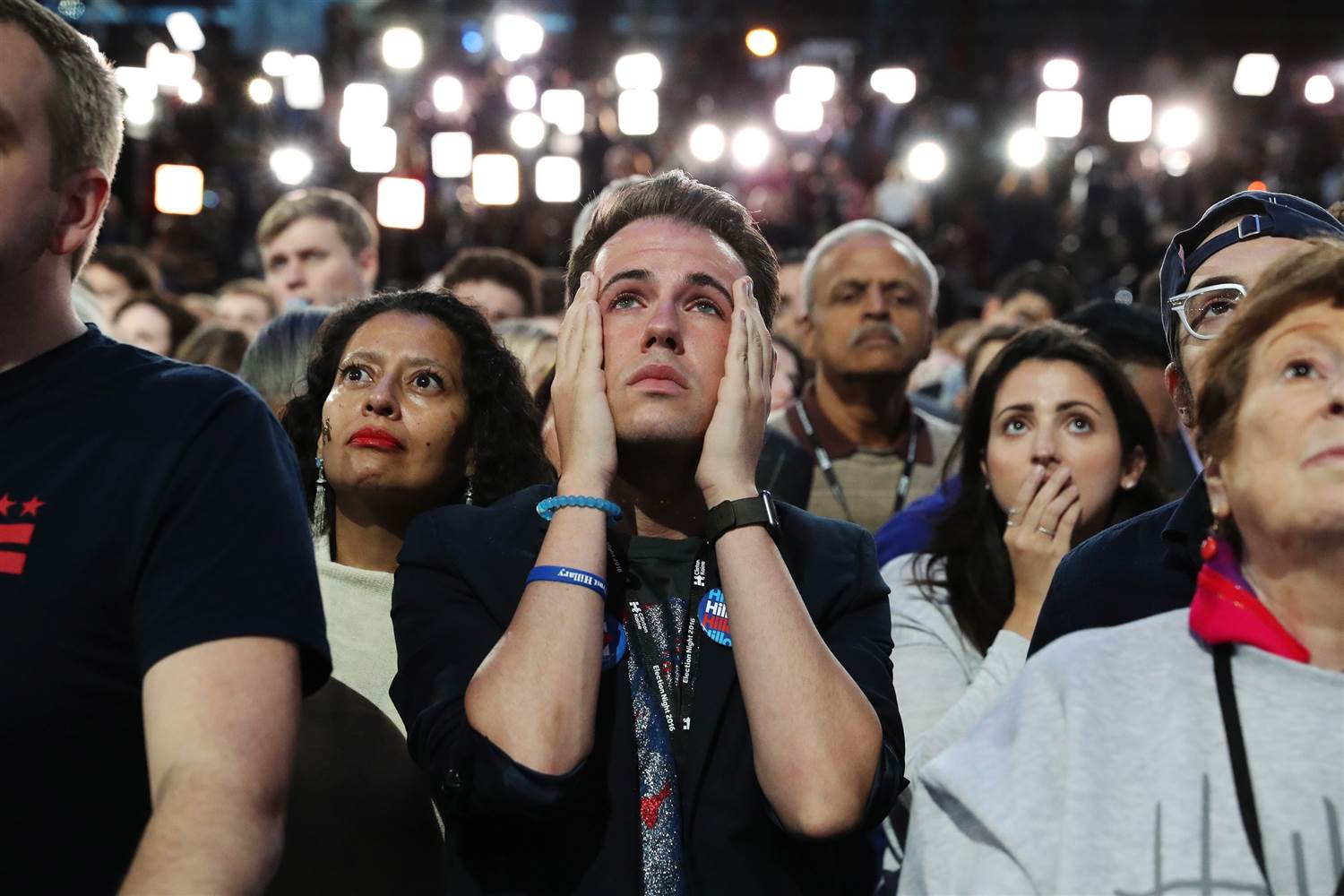| Translation by The Vactory. The original English version of the following essay can be found by clicking here.
Trigger-Warnung: Dieser Artikel ist eine Antwort auf ein von Gary Yourofsky hochgeladenes Video. Er enthält Zitate von Yourofsky, die auf Gewalt, sexuellen Missbrauch und Vergewaltigung Bezug nehmen. Das Video enthält ableistische Sprache und behauptet, dass jede Person, die zum Tod verurteilt wurde, auch schuldig ist. (#FreeLeonardPeltier! #FreeMumia!) Des Weiteren enthält es ein unglaubliches Ausmaß an Machogehabe, aggressive, explizite und teilweise verstörende Sprache, welche für einige Leute triggernd sein kann. |
„Nach 18 Jahren Prozess ist das Urteil endlich da!“, verkündete Gary Yourofsky kürzlich in den sozialen Medien. „Bezüglich meiner Befürwortung von Vergewaltigung wurde ich in allen Punkten für UNSCHULDIG befunden!“
Diese Aussage nimmt Bezug auf die Gegenstimmen seines berüchtigten Zitats:
Jede Frau, die sich in Pelz hüllt, sollte eine so grausame Vergewaltigung ertragen, dass sie fürs Leben gezeichnet ist.
Die „Bezeugung“ (in Form eines 28-minütigen Videos) geht bis ins kleinste Detail darauf ein, wieso er sich so ungerecht behandelt fühlt.
Es ist aber keine echte Verhandlung. Yourofsky hat sich selbst zum „Richter“ ernannt (daher auch seine Unschuld) und schließt seine Aussage damit ab sich zu bedanken: „Vegane Liebe an alle meine Unterstützer, welche sich geweigert haben diese psychotischen und diffamierenden Lügen über mich zu glauben. Und an all die Organisationen und Leute die mich angegriffen haben und behaupten, ich würde Vergewaltigung befürworten: Ich fordere euch hiermit heraus, den Level meiner Anti-Haltung zu überbieten. Los, traut euch.“ Er wartet einen kurzen Augenblick, um dann auf eine aggressive Art fortzufahren: „Was? Ja, dachte ich es mir doch. Ich gewinne, wie immer! Schachmatt! Ihr verliert!! Fickt euch!“
Yourofsky bemüht sich in dem Video sehr stark darum, darzustellen wie sehr er Vergewaltiger verabscheut: „Dass sollte jedem Vergewaltiger widerfahren, auch wenn er eine Frau im Pelzmantel vergewaltigt (falls das jemals vorkommen sollte).“
Laut „Women Organized Against Rape” wird jede vierte Frau und jeder sechste Mann vor Erfüllung seines achtzehnten Lebensjahres Opfer einer Vergewaltigung. Wenn man bedenkt, wie normalisiert das Tragen von Pelz in unserer Gesellschaft ist, ist die Chance relativ hoch, dass jemand der Pelz trägt vergewaltigt wird.
Er fährt fort:
Sein Penis und seine Hoden sollten mit einem Nagelhautentferner langsam versengt werden, und dann sollten ihm zwei Spieße in die Augenhöhlen gestoßen werden. Danach würde man ihn in einen anderen Raum zerren. Da angekommen sollte man seinen Penis und seine Hoden in Durchfall und Erbrochenes eintauchen. Um sein Leben zu retten würde man ihm dann die Option anbieten dies zu essen. Und wenn er es dann tatsächlich isst, würde ich eine Waffe ziehen, sie ihm zwischen die Augen drücken und sagen „Das war nur ein Scherz“.
Andernorts sagt er: „Tausende von Leuten, hauptsächlich Veganer, haben mich seit 1997 beschuldigt, Vergewaltigung gutzuheißen“ und dass er seit 18 Jahren ununterbrochen mit Falschaussagen schikaniert wird. Aus seinen Aussagen wird klar, dass er Vergewaltiger nicht mag. Doch sagt er auch, dass er das berüchtigte Zitat so niemals geäußert hat?
„Ich rufe alle meine Anhänger auf, die Lügner und Betrüger zu verurteilen die behaupten, dass ich Vergewaltigung befürworte, weil ich es jemandem gewünscht habe. Ich wiederhole: Weil ich es Männern und Frauen gewünscht habe, die Vergewaltigung und Mord unterstützen indem sie sich in Pelzmäntel hüllen.“ Weiter sagt er, dass es niemanden gibt (einschließlich Vergewaltigungsopfern), der Vergewaltigung so sehr verurteilt wie er.
Man kann mit Sicherheit behaupten, dass jemand der*die eine Vergewaltigung überlebt hat, dieser Aussage widersprechen würde. Doch schaut man sich an, was er eigentlich sagt, sieht man, dass er nicht den eigentlichen Akt der Vergewaltigung befürwortet. Er wünscht es lediglich den Leuten, die es, wie er findet, verdient haben oder „böse“ sind.
Auch wenn es ein Unterschied ist, ob man sagt„Ich wünschte, diese Person würde vergewaltigt“, oder leibhaftig jemanden vergewaltigt, so ist es doch merkwürdig, dass Yourofsky die Konsequenzen von Sprache nicht versteht, geschweige denn die Konsequenzen, wenn ein Mann darüber redet eine Frau zu vergewaltigen (auch wenn es „nur Worte“ sind). Dass er, wenn er Vergewaltigung als Methode zur Bestrafung benutzt (auch wenn es „nur Worte“ sind) zur kollektiven Rape Culture beiträgt und dies auch Tiere wie z.B. Milchkühe betrifft, welche wiederholt, gewaltsam geschwängert werden (sprich: vergewaltigt), und das nur für ein Produkt. Dass er nicht versteht, dass wenn ein aggressiv klingender Mann von seinen Vergewaltigungsfantasien erzählt, dies für Vergewaltigungsopfer unglaublich triggernd sein kann. Daher ist es befremdlich, dass er nicht versteht wie all dies Gegenwind auslösen oder rechtfertigen könnte.
„WÜNSCHEN“
Er wünscht bösen Menschen böse Dinge. Und auch wenn dies Vergewaltiger, Kinderschänder und Täter*innen häuslicher Gewalt einschließt, so ist in seinen Augen niemand gewalttätiger als diejenigen, welche die Tierindustrie unterstützen.
„VORSCHLAGEN“
„Niemand widerspricht meiner Position bezüglich Gewalt, sie stimmen nur nicht mit mir überein, zu wessen Gunsten Gewalt einzusetzen sei.”
„HOFFEN“
„Aus meinem tiefsten Innersten hoffe ich, dass Unterdrückung, Folter und jeder Mord zu jedem gefühllosen Menschen zehnfach zurückkehrt.“
„SOLLTE“
„Jede Frau, die sich in Pelz hüllt, sollte eine so grausame Vergewaltigung erleben, dass sie fürs Leben gezeichnet ist.“ Was Vergewaltigung angeht, so ist es das, was den Leuten (er bezieht auch Männer mit ein), die die Pelzindustrie unterstützen widerfahren sollte.
Das ist der Grund, weswegen Leute ihn beschuldigen, Vergewaltigung gut zu heißen, doch er sieht das einfach nicht.
So fragt er sich: Wieso konzentrieren sich die Leute auf seine Worte, wenn Tiere als Essen angesehen werden und täglich ermordet, gefoltert und in vielen Fällen gewaltsam geschwängert (sprich: vergewaltigt) werden? Dies würde nicht passieren, wenn niemand diese Industrie finanziell unterstützen würde. Dies sollte seiner Meinung nach der Fokus sein, und nicht etwas, das er gesagt hat.
In diesem Punkt hat er Recht. Unsere Gesellschaft ist sozial so stark konditioniert, dass wir mit dem Glauben aufgezogen wurden, die Gewalt an gewissen Tieren sei in Ordnung. Einer Konditionierung, die sagt, dass bestimmte Tiere nur dafür da sind von uns gegessen zu werden und als Kleidung zu dienen. Die Tierindustrie bemüht sich sehr, diese Dissoziation zu unterstützen, indem sie die Wahrheit über die Zustände in den Tierfabriken verschleiert und Bilder von glücklichen Tieren auf ihre Packungen druckt, um den Eindruck zu erwecken, das Tier sei glücklich unser Essen zu sein.
Wenn wir dann die Fleischpackungen sehen, ist das Aussehen so weit von dem eines lebenden Tieres entfernt, dass wir den Ursprung leicht ignorieren oder sogar vergessen können. Die Tierindustrie hat solche Panik davor, dass ihre Konsumenten die Wahrheit erfahren, dass sie den Staat veranlasst haben, Gesetze zu verhängen die es illegal machen auf ihre Grausamkeit aufmerksam zu machen. Außerdem, wie soll man denn sonst zu genügend Protein und Kalzium kommen? Wir werden erzogen in dem Glauben, dass wir nicht stark und gesund sein können, wenn wir keine Tiere essen. Doch das ist eine der vielen Mythen, die von der Tierindustrie aufrechterhalten werden.
Es ist auch so, dass es eine enorme Dissoziation gibt bei dem Thema Vergewaltigung und Speziesismus, und dass viele Anti-Vergewaltigungs-Aktivist*innen und Feminist*innen die Verbindung zwischen Milchkühen und der kollektiven Rape Culture nicht machen. Sie wissen nicht, dass eine Kuh wiederholt gewaltsam geschwängert (sprich: vergewaltigt) werden muss, damit sie kontinuierlich Milch gibt, und ihr ihre Babys immer und immer wieder weggenommen werden. Für die Industrie ist ihr Baby nur Fleisch. Dies geschieht so oft, bis sie emotional und physisch so heruntergewirtschaftet ist, dass sie keine Kälber mehr produzieren kann (und entsprechend auch keine Milch) so dass sie geschlachtet wird. Uns wird beigebracht, dass es keinen Grund zur Sorge gibt, da Kühe und andere „Nutztiere“ gefühllose, lieblose Kreaturen sind, die ihre Umgebung nicht bewusst wahrnehmen und mit ihr interagieren können. Auch dies ist eine der Mythen.
In diesen Punkten hat er absolut Recht. Doch Yourofsky gibt sich weiterhin irritiert darüber, warum die Leute solchen Anstoß an seinen Statements nehmen, anstatt die Aufmerksamkeit auf diese sehr viel schlimmere Sachlage zu richten. Doch nur weil etwas noch schlimmer ist, heißt das nicht dass das weniger Schlimme keine Konsequenzen hat. Man könnte sagen „Oh, ich hoffe du wirst erschossen und stirbst einen langsamen, qualvollen Tod.“ Währenddessen kommt es in einem anderen Teil der Welt zu einem Genozid. Ja, Letzteres ist durchaus schlimmer, doch die Aussage hat trotzdem Konsequenzen.
Man muss einräumen, dass Yourofsky seine Aussage teils konkretisiert und klarstellt, dass er nur den Menschen Gewalt wünscht, die direkt oder indirekt in die Nutztierindustrie involviert sind. Er geht davon aus, dass wenn Menschen das Ausmaß von Gewalt erleiden müssten, das den Tieren widerfährt, sie sich vielleicht nicht weiter an der Gewalt beteiligen würden. Allerdings konkretisiert er das nur manchmal. Und wenn er es tut, müssen die Zuhörer*innen erstmal an seinen Eingangs-Statements vorbei, die voll sind mit Wünschen, Hoffen und Befürworten von Gewalt gegen sie, bis sie zum eigentlich Punkt durchkommen. Zu anderen Gelegenheiten ergeht Yourofsky sich einfach nur in anschaulichen Tiraden darüber, was seiner Meinung nach mit Leuten passieren sollte, die bösartig sind
Tatsächlich arbeitet es nur gegen das Anliegen der Tierbefreiung, sich verbal für Gewalt gegen eine Person auszusprechen, die nicht vegan ist. Es ist außerdem äußert heuchlerisch, da man, sofern man nicht vegan geboren wurde, auch einmal zu der Gewalt an den Tieren beigetragen hat. Und selbst als Veganer*in kann man es nicht komplett umgehen, da bei der Ernte von Gemüse, Früchten und Getreide Insekten und Mäuse getötet werden. Wenn unsere Häuser gebaut werden, schaden wir den Tieren die dort lebten. Viele Veganer*innen benötigen Medikamente, die an Tieren getestet wurden.
Lasst uns daran arbeiten dieses System zu ändern, das es beinahe verunmöglicht Tieren nicht zu schaden. Es ist leider nach wie vor so, dass niemand vollständig unschuldig ist.
Als Aktivist*innen müssen wir uns immer vor Augen halten, dass es einen Unterschied gibt welche Aussage sich gut anfühlt und kathartisch ist, und welche eine effektive Taktik oder ein gutes Argument ist. Das wir überlegen, was wir in unserem Tagebuch schreiben oder einer privaten Unterhaltung sagen, und was wir mit dem Rest der Welt teilen, vor allem mit denjenigen, die sich uns anschließen sollen. Die Tiere brauchen so viele Menschen auf ihrer Seite wie möglich, denn nur so kann das Ziel der Tierbefreiung erreicht werden.
Gary Yourofsky hat mittlerweile ein neues Video herausgebracht, mit dem Titel „Palästinenser, Schwarze und andere Heuchler“ in dem er beklagt, dass ihn Leute in der Gemeinschaft „unfairerweise“ bezichtigen, rassistische Äußerungen zu machen.
Hmm, warum wohl?
 Dr. Wrenn is Lecturer of Sociology. She received her Ph.D. in Sociology with Colorado State University in 2016. She received her M.S. in Sociology in 2008 and her B.A. in Political Science in 2005, both from Virginia Tech. She was awarded Exemplary Diversity Scholar, 2016 by the University of Michigan’s National Center for Institutional Diversity. She served as council member with the American Sociological Association’s Animals & Society section (2013-2016) and was elected Chair in 2018. She serves as Book Review Editor to Society & Animals and has contributed to the Human-Animal Studies Images and Cinema blogs for the Animals and Society Institute. She has been published in several peer-reviewed academic journals including the Journal of Gender Studies, Feminist Media Studies, Disability & Society, Food, Culture & Society, and Society & Animals. In July 2013, she founded the Vegan Feminist Network, an academic-activist project engaging intersectional social justice praxis. She is the author of A Rational Approach to Animal Rights: Extensions in Abolitionist Theory (Palgrave MacMillan 2016).
Dr. Wrenn is Lecturer of Sociology. She received her Ph.D. in Sociology with Colorado State University in 2016. She received her M.S. in Sociology in 2008 and her B.A. in Political Science in 2005, both from Virginia Tech. She was awarded Exemplary Diversity Scholar, 2016 by the University of Michigan’s National Center for Institutional Diversity. She served as council member with the American Sociological Association’s Animals & Society section (2013-2016) and was elected Chair in 2018. She serves as Book Review Editor to Society & Animals and has contributed to the Human-Animal Studies Images and Cinema blogs for the Animals and Society Institute. She has been published in several peer-reviewed academic journals including the Journal of Gender Studies, Feminist Media Studies, Disability & Society, Food, Culture & Society, and Society & Animals. In July 2013, she founded the Vegan Feminist Network, an academic-activist project engaging intersectional social justice praxis. She is the author of A Rational Approach to Animal Rights: Extensions in Abolitionist Theory (Palgrave MacMillan 2016).
Receive research updates straight to your inbox by subscribing to my newsletter.


